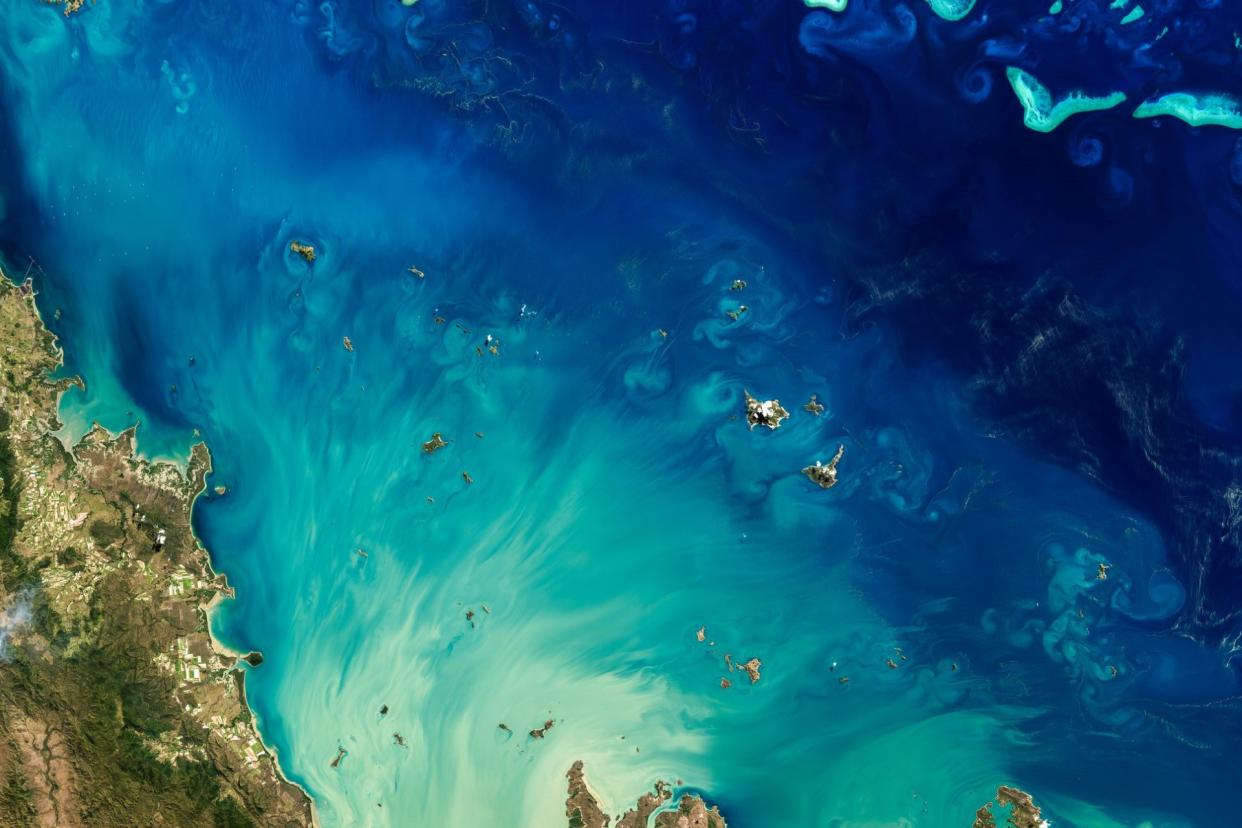Researchers use new satellite mapping technique to monitor coral reefs: 'This discovery offers the opportunity of assessing reef biodiversity at global scale'

Researchers from the University of Miami are turning to space technologies to keep tabs on the health and biodiversity of coral reefs worldwide, which could have a big impact on conservation efforts.
The Rosenstiel School of Marine, Atmospheric, and Earth Science research team used satellites to map species and habitat diversity across 880 field stations throughout the Atlantic, Pacific, and Indian Oceans.
Scuba divers track and measure coral reef biodiversity, but this method is tedious, expensive, and unfeasible for large reef systems. This drove the team to discover new ways to use satellites to map reef biodiversity across the globe.
"We show how the biodiversity of these ecosystems can instead be retrieved from satellite maps of the seabed," Anna Bakker, a doctoral candidate in the Department of Marine Geosciences and the study's lead author said in a news release. "This discovery offers the opportunity of assessing reef biodiversity, at global scale, from orbit."
For the study, the researchers used diver surveys of fish and coral reef biodiversity from the Khaled bin Sultan Living Oceans Foundation Global Reef Expedition maps, which provide data on around 25% of Earth's shallow-water coral reefs near the equator.
Next, they used the maps to examine the diversity of the arrangements of seabed habitats, which they found correlated to the variety of species living in them. Since they determined this was true across the field stations studied, the team supported using satellite mapping as a viable tool to track reef biodiversity.
Watch now: World-famous climber shares how he teaches his baby daughter to compost
According to the researchers, "the results from this study can aid in marine spatial planning and the designation of marine protected areas to protect reefs with high biodiversity."
We need every tool in our arsenal to protect these incredibly complex and fragile marine ecosystems. According to the United Nations, coral reefs provide natural flood protection, food security, and jobs for around 1 billion people, and they are home to nearly one-third of all marine species.
Thankfully, scientists and organizations are scrambling to conserve them, keeping some preserved until ocean conditions improve and even using robots to grow coral in under nine months.
Reefs in Mexico's Baja California Sur are making a resurgence thanks to tireless efforts by local fishermen to convince the government to create the Cabo Pulmo National Park in 1995.
Coral reefs are vital to a healthy planet. By working together to safeguard them and reducing the pollution warming the oceans, we can keep these important habitats alive for the millions of species that depend on them.
Join our free newsletter for cool news and cool tips that make it easy to help yourself while helping the planet.

